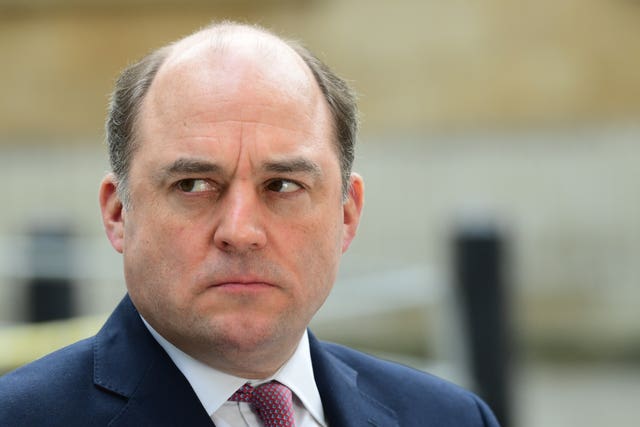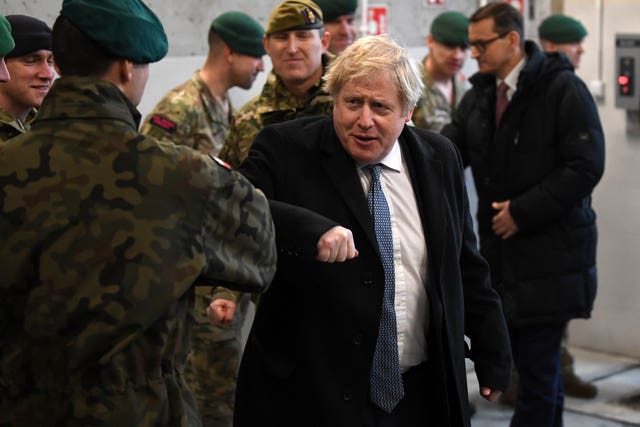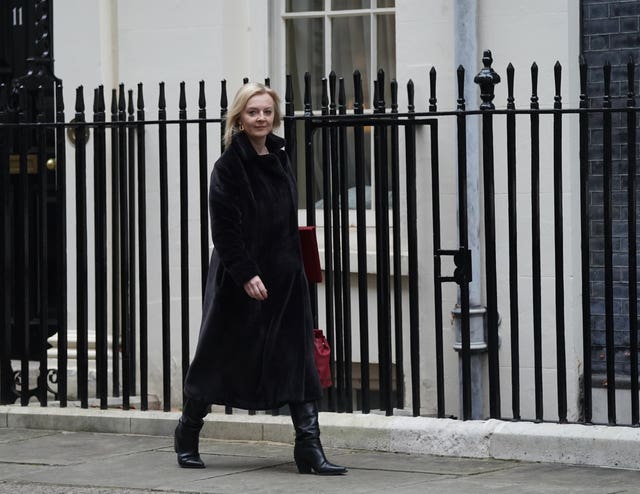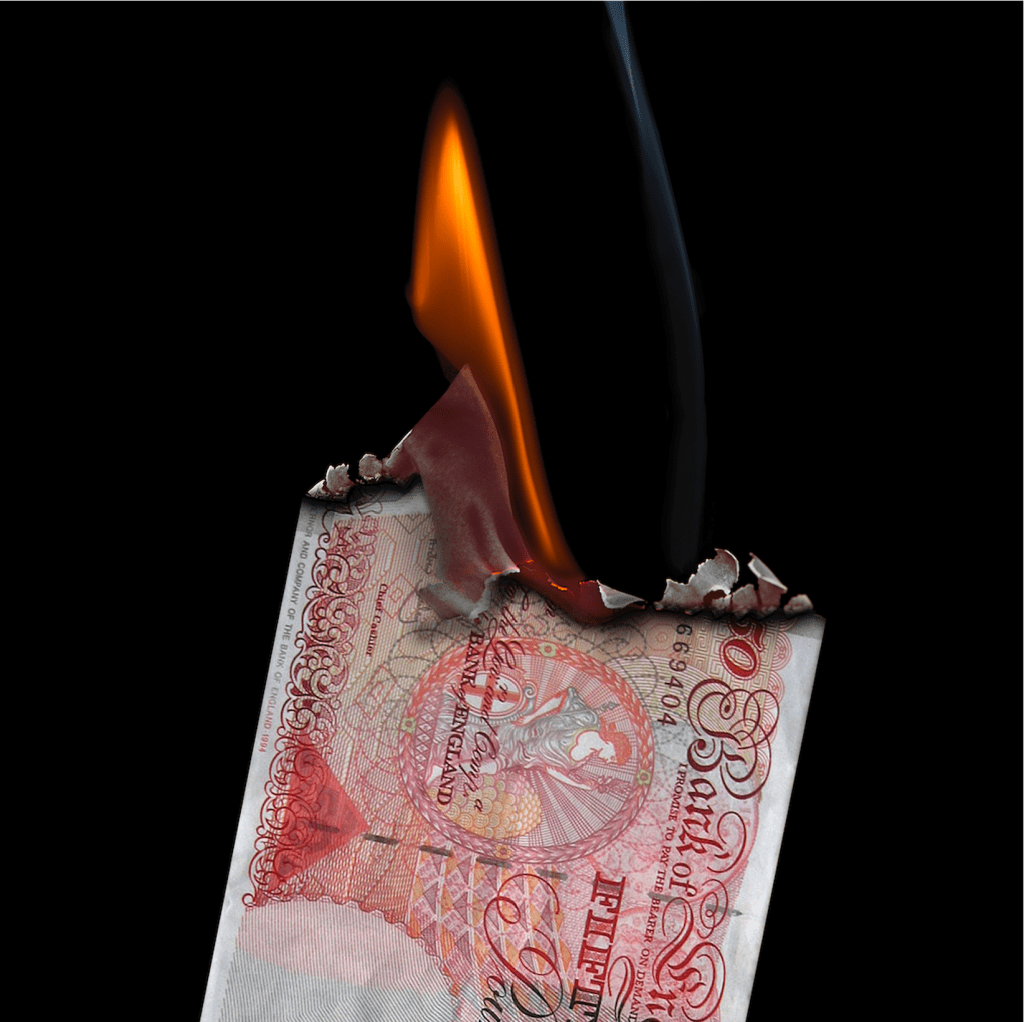Ben Wallace will meet his Russian counterpart after Boris Johnson insisted Vladimir Putin must not be allowed to ‘bully’ eastern Europe.
11 February 2022
The Defence Secretary will travel to Moscow on Friday to meet his Russian counterpart in an attempt to quell the crisis on the Ukrainian border.
The trip will follow the Prime Minister’s visits to Brussels and Warsaw on Thursday, where he insisted Vladimir Putin must not be allowed to “bully” eastern Europe as he warned the continent faced its biggest security crisis in decades.
Meanwhile, Foreign Secretary Liz Truss was involved in testy exchanges with Russian counterpart Sergei Lavrov, with no sign of a diplomatic breakthrough being achieved following their meeting in Moscow.
It comes as the Government confirmed preparations to allow the UK to “toughen and expand” its sanctions against Russia have come into force.
The UK could now impose sanctions on Russian businesses and individuals in a range of significant sectors, such as the chemical, defence, extractives, ICT and financial services industries.


The Times reported that Ben Wallace will make clear to Sergei Shoigu, the Russian defence minister, that invading Ukraine would be a “lose-lose” situation.
The UK has put 1,000 troops on standby in case of a humanitarian crisis in the east if the current Russian military build-up leads to war.
It has also pledged extra help for Nato allies, with 350 Royal Marines arriving in Poland to coincide with the Prime Minister’s visit on Thursday.
Russia has insisted it has no plans to invade Ukraine but the Nato alliance is alarmed by the build-up of more than 100,000 troops on the borders with its neighbour.
During his overseas engagements, Boris Johnson indicated further military support could be offered to Ukraine if Russia invades.
But he made it clear that Britain could not intervene militarily if Ukraine was attacked.
In a pooled clip for broadcasters at a military base in Warsaw, he said: “The UK has been supplying some defensive weaponry in the form of anti-tank missiles, we have been training Ukrainian troops. That is as far as we can go at the moment.
“Ukraine is not part of Nato. What we are sticking up for is the right of Ukraine like any other sovereign independent country to aspire to that.”
At an earlier press conference, speaking alongside Nato secretary general Jens Stoltenberg at the alliance’s headquarters in Brussels, the Prime Minister called on Russia to engage in meaningful talks because it was “far better to begin a discussion now than to have a catastrophe”.
The UK has already supplied 2,000 anti-tank missiles, body armour, helmets and combat boots to Ukraine and Mr Johnson indicated he could go further.


Asked if he could authorise military support to an insurgency in Ukraine in the event of an invasion, he said: “We will consider what more we can conceivably offer.
“The Ukrainians are well prepared, there are things we’ve offered that they, in fact, don’t seem to need because they think they have them in enough numbers already.
“It’s possible, I don’t want to rule this out, but at the moment we think the package is the right one.
“But I want to stress it would be an absolute disaster if it was to come to that and if there was to be serious bloodshed on Ukrainian soil.”
In Moscow, Ms Truss had a difficult encounter with Mr Lavrov.


He characterised the meeting as a “conversation between deaf and dumb”, but Ms Truss said: “I was not mute in our discussions earlier, I put forward the UK’s point of view on the current situation and the fact that as well as seeking to deter Russia from an invasion into Ukraine, we are also very resolute in pursuing the diplomatic path.”
She added: “There is still time for Russia to end its aggression towards Ukraine and pursue the path of diplomacy.
“But Nato is very clear that if that path is not chosen there will be severe consequences for Russia, Ukraine and the whole of Europe.”
Ms Truss called for Russia to pull its troops back from the border to ease tensions.
“There is no doubt that the stationing of over 100,000 troops on the Ukrainian border is directly put in place to threaten Ukraine,” she said.
There had also been “cyberattacks and other attempts to undermine the activities of a sovereign nation”.
Ms Truss said: “If Russia is serious about diplomacy they need to move those troops and desist from the threats.”
The visit to Moscow was the first by a foreign secretary in four years, with the relationship between the UK and Russia severely strained by incidents including the 2018 Salisbury nerve agent attack.
In a sign of the chilly atmosphere at the talks, Mr Lavrov said “ideological approaches, ultimatums and moralising is a road to nowhere” and accused Ms Truss of being ill-prepared for the negotiations.
Rejecting Ms Truss’s call for forces to pull back, Mr Lavrov said: “The demands to remove the Russian troops from the Russian territory cause regret. We don’t want to threaten anyone. It’s us who are facing threats.”
But he indicated force levels would fall once military exercises had been completed, at which point “the West will likely claim that it has forced Russia to de-escalate”.



